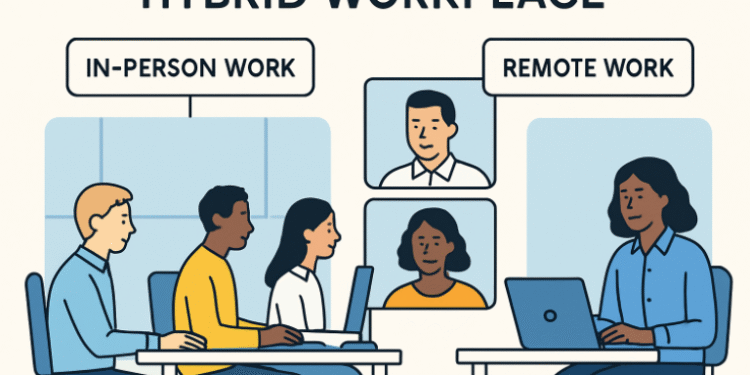The modern workplace is rapidly transforming, reshaping how people work and the rights and protections they expect. Evolving labor laws, technological advances, and growing awareness of diversity, equity, and inclusion are prompting organizations to rethink long-standing policies. Remote and hybrid work arrangements, pay transparency initiatives, mental health accommodations, and stronger protections against discrimination are becoming central to employment discussions. At the same time, globalization and the gig economy are challenging traditional definitions of “employee” and “employer,” driving debates about fair treatment, benefits, and job security. Together, these shifts highlight a future where workplace rights are more dynamic, adaptable, and people-centered than ever before.
The rapid evolution of the workplace—powered by technology, dynamic employee expectations, and new laws—has transformed how employers and workers interact. Navigating these shifts is essential, especially as compliance and fair treatment remain at the forefront of workplace concerns. For employers and employees, seeking clarity on workplace rights can be complex, with local legal guidance from experienced employment lawyers in Denver CO offering essential advice tailored to Colorado’s unique legal climate. As remote work becomes more mainstream and companies double down on sustainability, the lines defining employee protections and employer obligations are redrawn. Forward-thinking organizations and individuals are staying informed to ensure fair treatment, legal compliance, and workplace satisfaction in this changing landscape.
Hybrid Work Models and Flexible Arrangements
The COVID-19 pandemic significantly accelerated the adoption of remote work, forging a lasting preference for hybrid work models. These arrangements blend on-site and home-based work, allowing greater flexibility and improved work-life balance. Nearly half of all remote-capable workers in the U.S. now operate in hybrid models, upending traditional nine-to-five routines. Organizations are tasked with crafting policies that promote collaboration, guard against remote worker isolation, and ensure equity between in-office and remote teammates.
Crafting inclusive hybrid environments isn’t just a logistical challenge; it’s also a legal one. Companies can offer flexibility by evaluating communication standards, setting clear expectations, and investing in the right technologies while maintaining productivity and compliance.
Integration of Artificial Intelligence and Automation
Artificial intelligence and automation tools are increasingly integral to recruitment, HR, and performance management. AI can streamline tasks ranging from resume screening to workflow automation, dramatically increasing efficiency and transforming businesses’ operations. However, using algorithms to assess employee performance or select job candidates has significant implications for privacy, potential bias, and worker protections.
Responsible implementation is critical. Employers must ensure that algorithms are fair, transparent, and regularly reviewed for bias. With many states proposing or enacting legislation to govern AI in hiring and management, businesses must prioritize ethical use to remain compliant and to protect employee rights.
Emphasis on Employee Well-Being and Mental Health
Organizations are increasingly aware that supporting employee mental health leads to enhanced productivity and retention. The modern approach involves more than offering basic health benefits; it includes flexible scheduling, mental health resources, stress reduction initiatives, and accommodations for remote work needs. Studies consistently show that businesses investing in employee well-being see higher satisfaction, reduced absenteeism, and improved retention.
Providing managers with training to recognize signs of distress, fostering an open dialogue about mental health, and integrating mental health days into PTO policies reflect a broader workplace shift toward holistic support. These practices are rapidly becoming expected by job seekers and current employees alike.
Rise of the Gig Economy and Associated Regulations
The gig economy has surged as platforms like Uber, DoorDash, and TaskRabbit make freelance work more accessible than ever. This rise brings new opportunities, unprecedented flexibility, and unique risks regarding job security and benefits. States like California are at the forefront, enacting laws such as AB5 to reclassify many gig workers as employees, potentially entitling them to minimum wage and health insurance protections. These regulatory shifts aim to redefine the relationship between contractors and companies. As government agencies continue to weigh in on the scope of worker rights within the gig economy, employers and workers must stay alert to legislative updates and court rulings impacting obligations and entitlements.
Enhanced Focus on Diversity, Equity, and Inclusion (DEI)
Diversity, equity, and inclusion are no longer optional—they are foundational for workplaces that want to succeed legally and competitively. Successful DEI strategies include proactive recruiting, anti-bias training, equitable advancement opportunities, and transparent pay practices. These organizational values improve innovation, morale, and business outcomes, while ensuring compliance with equal opportunity laws and anti-discrimination mandates. Organizations should regularly update policies and invest in long-term cultural change to stay current with changing regulations and public expectations.
Evolution of Wage and Hour Laws
Jurisdictions across the U.S. consistently reevaluate wage and hour laws to address evolving economic realities and protect workers in a modernized job market. Ongoing changes include minimum wage increases, new overtime eligibility standards, and stricter rules against wage theft. With federal, state, and local policies shifting at different paces, employers must maintain strong compliance programs and transparent communication about compensation. Employees working in flexible or remote settings—especially those paid on a salaried or contract basis—should pay special attention to evolving wage laws, as new definitions of “work time” can dramatically affect earnings and overtime eligibility.
Employee Activism and Its Impact on Workplace Policies
Employee advocacy for social and political causes is rapidly changing corporate norms. Staff now expect companies to take public stances on racial justice, climate change, and workers’ rights. This activism impacts everything from internal policies to external brand reputation, driving a new era of transparency and accountability. Progressive employers recognize the value of aligning organizational values with those of their workforce. Open dialogue, employee resource groups, and leadership engagement help build cohesive, values-driven workplaces and can mitigate legal risks related to discipline, whistleblower protections, and labor organizing.
Sustainability and Corporate Responsibility in the Workplace
With climate change and environmental issues in the spotlight, sustainability initiatives are increasingly integral to workplace strategy. Companies are designing greener offices, investing in renewable energy, and embracing sustainable supply chains to minimize environmental impact and meet growing regulatory requirements. These changes reduce costs, attract eco-conscious employees, and cultivate trust among stakeholders and the general public.
The push for sustainability extends beyond physical infrastructure, including ethical sourcing, waste reduction, and community engagement. Organizations that take meaningful steps toward sustainability are better positioned to withstand regulatory scrutiny and public demand for corporate responsibility.
Understanding and adapting to these modern trends is essential for anyone navigating employment law today. Staying informed empowers employers and employees to create fair, compliant, and future-ready workplaces.
Final Thoughts
The modern workplace is transforming significantly due to labor laws, technological advancements, and growing awareness of diversity, equity, and inclusion. This has led to hybrid work models, pay transparency, mental health accommodations, and stronger protections against discrimination. The COVID-19 pandemic has accelerated remote work, requiring companies to create inclusive hybrid environments while maintaining productivity. Artificial intelligence and automation tools are crucial for recruitment, HR, and performance management, but they also have implications for privacy and worker protections. The gig economy has increased accessibility, and organizations must invest in diversity, equity, and inclusion strategies.









